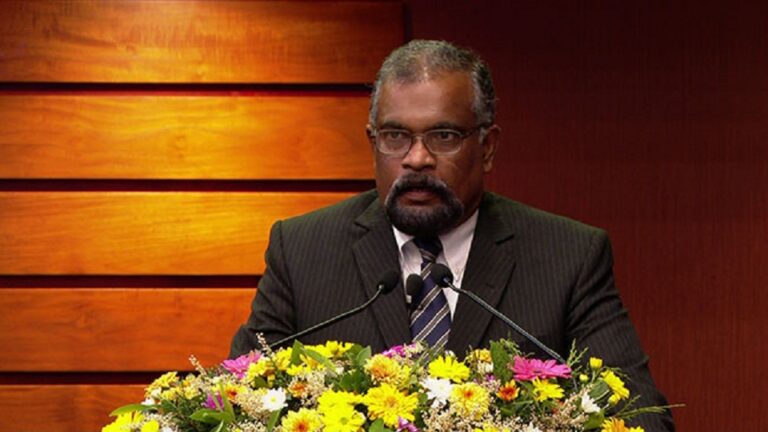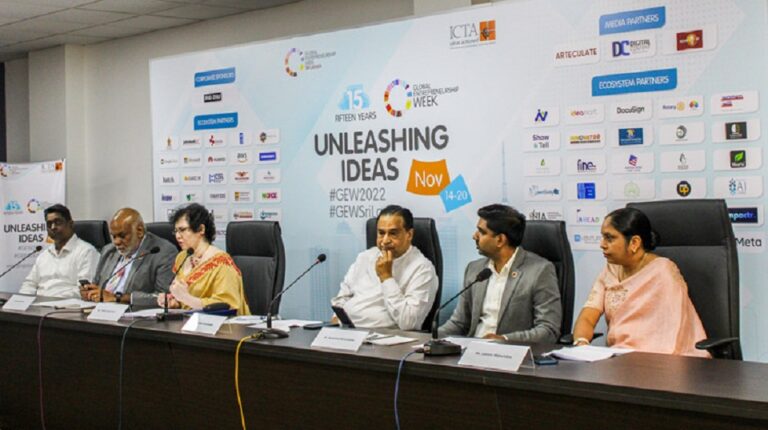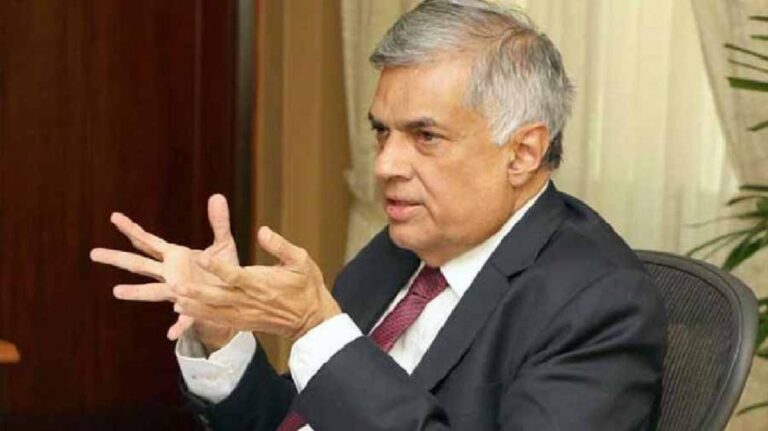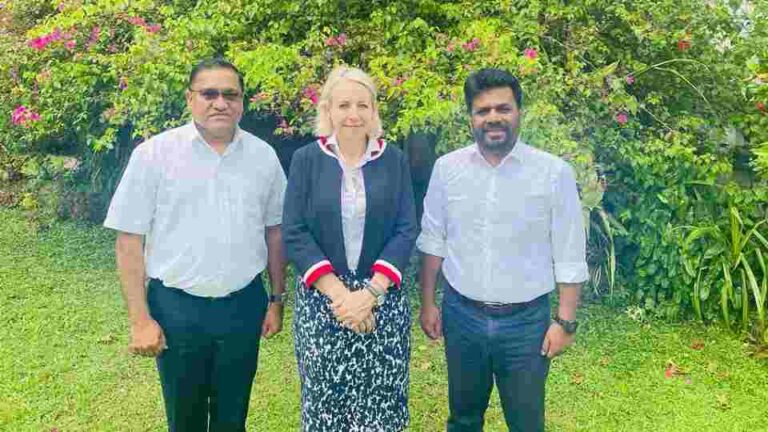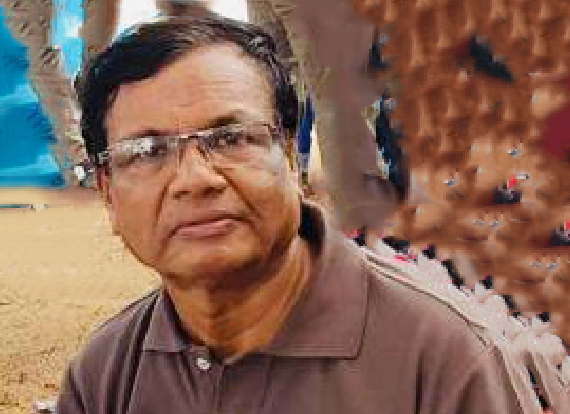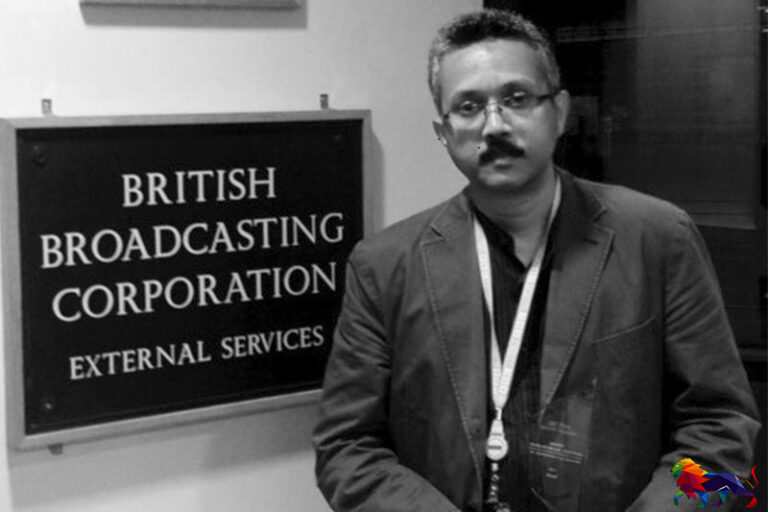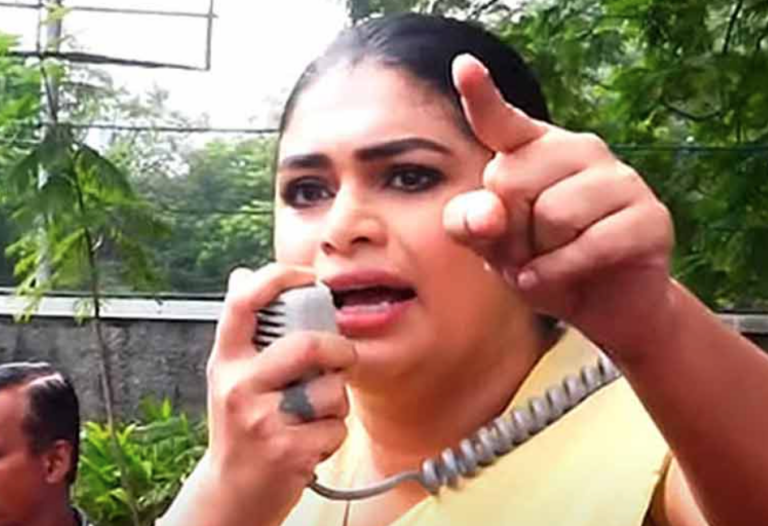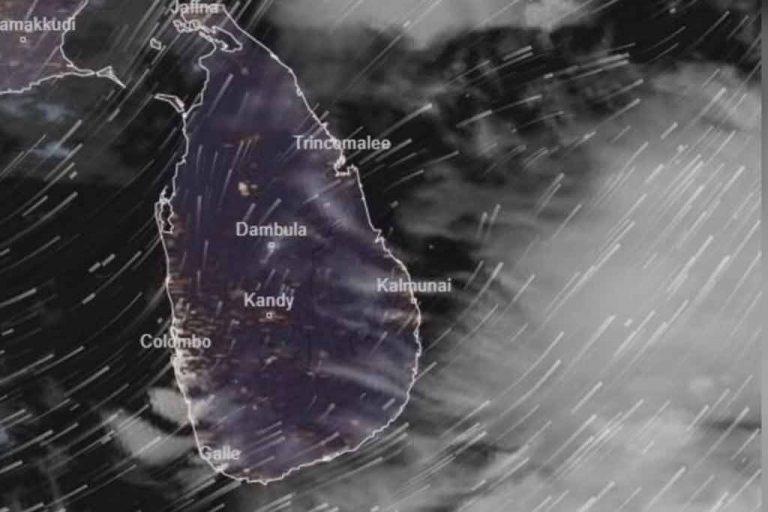The government is compelled to settle unpaid bills of about Rs. 200 billion, mainly to the construction and various other institutions, says the Secretary to the Ministry of Finance Mahinda Siriwardana.
Finace Ministry is taking prompt action to pay the money owed to the public construction contractors in several phases, official sources said.
Accordingly, before the end of this year, an amount of Rs 20 billion rupees is expected to be disbursed and the government is currently working to pay all the remaining arrears in the first quarter of next year.
Sri Lankan government construction contractors numbering around 3000 are in an urgent need of funding for their survival as they have to recover Rs. 150 billion outstanding payment for the work completed in public construction projects including buildings and infrastructure facilities.
Mr Siriwardana stated that the government has come up with revenue and tax policies because the government is unable to pay those bills.
The Treasury Secretary disclosed these details s while speaking during a post-budget seminar on the 2023 budget, under the theme “Dissecting the Budget 2023”, at the Central Bank in Colombo yesterday (15).
“On day-to-day operations when you are maintaining the cash flow, I see how difficult it is. Because your revenue is not sufficient even to pay for your essential items like the salaries, wages, maybe subsidies and all sorts of things.”
“And as a result, I have indicated this earlier also, we have unpaid bills of about Rs. 200 billion and mainly those are to the construction and various other institutions. And as a result, I know the pain that these specific sectors are going through,” he said.
“But unfortunately the government is not in a position to pay those things. “However, he said that at the same time while paying all these essential items, the government has to manage the other things as well. “And at the same time, we have to contribute to the strengthening of stabilization process as well.”
The Finance Secretary said that the reduction of expenditure is again not an easy task. “That is where the government has come up with revenue policies and tax policies to increase the government revenue.”
“So you have to maintain the public sector and you have to continue the government machinery and at the same time you have to contribute the stabilization. So you have to maintain a balance between these two,” he added.
Siriwardana also said that stabilizing the economy remained a challenge and the private sector must perform its role in aiding the government in pulling the economy out of crisis.
He said the government was setting up a Presidential Committee to monitor and ensure timely implementation of budget proposals.
SL Government burdened with unpaid bills of around Rs. 200 billion
Sri Lanka Entrepreneurs to get insights on Transform Ideas into Action
The Information and Communication Technology Agency (ICTA) of Sri Lanka and partner organizations will mark Global Entrepreneurship Week (GEW) from 14th -20th November 2022.
Over eighty events will be organized by fifty ecosystem enablers covering four themes; ecosystems, education, inclusion, and policy. In addition, a series of events will take place across the country to celebrate and empower entrepreneurs as a driving force in the economy.
Speaking at the launch. Acting Managing Director Global Entrepreneurship Network Sri Lank Suresh de Mel stated, “this November, Global Entrepreneurship Network will celebrate 15 years of helping millions of people unleash their ideas to start and scale new businesses through GEW.
The campaign began in 2008 with an emphasis on inspiring young people to make their mark and has quickly grown to become a comprehensive effort that engages entrepreneurs, investors, policymakers, researchers, support organizations and others collaborating to advance economic growth and innovation in more than 180+ countries around the world.,
GEW is an international movement dedicated to making it possible for anyone, anywhere to start and scale a company. It is an ideal platform for all aspiring individuals or institutions to connect, understand, support, and celebrate entrepreneurs globally”.
Throughout the GEW, informative and engaging discussions will take place to encourage entrepreneurs, stimulate economic expansion, and improve the welfare of individuals.
Apart from entrepreneurs, there will be activities for school students, university students, regional startup hubs and enablers, and aspiring entrepreneurs. Initiatives during the week include Bootcamps, Career Guidance sessions, entrepreneurs’ fair, virtual panel discussions, hackathons, and workshops.
In addition, topics such as ‘Challenge the Conventions’, ‘Pathways to Entrepreneurship in Japan, ‘Digital SME 101’, ‘Coding for Girls’, ‘Suhuruliya #SheMeansBusiness’, ‘Entrepreneurship policies and challenges in Digital Era’, ‘Bug Hunter Freelancer programs’, and ‘Investor Pitching’ will be covered through the activities.
Associate Chief Digital Economy Officer, ICTA, Sachindra Samararathne stated, “through the engagement of GEW, we hope to celebrate the entrepreneur journey, connect the support ecosystem with entrepreneurs and encourage budding entrepreneurs to start their venture contributing to the economic growth of our Country ”.
Secretary Ministry of Industries, Ms. Thilaka Jayasundara, stated, “as the key Ministry responsible for promoting industrial development in the country within the wide policy framework of the government, we believe entrepreneurs play a key role in driving the economy of the nation”.
Ms. Lakmini Wijesundara, Co-founder and Executive Director at IronOne Technologies & BoardPAC, shared her insights on how entrepreneurs should rise amidst challenges, especially in the context of female entrepreneurs in Sri Lanka, and discussed the immense potential the path of entrepreneurship offered for females.
The line up of activities coinciding with Global Entrepreneurship Week is made possible by the generous support of corporate sponsor Bug Zero, media partners, Digital Content (Private) Limited, Arteculate, and MTV News First, along with many ecosystem enablers.
US$ 1.7 billion in SOE debt owed to China entered Govt books
Cash strapped government is to restructure some of the profit-making state-owned enterprises while taking over responsibility for US $ 1.7 billion owed to China by State enterprises as it seeks to sell them off and restructure its foreign debt to secure an IMF bailout.
Fiscal stability through revenue consolidation typically remains a key ingredient in the IMF’s formula for economic recovery.
Hence, Budget 2023 did not contain any major revenue proposals, to the surprise of some, as speculation was rife that the government may introduce a wealth tax, which is part of the programme with the IMF.
The government expects to collect Rs.3130 billion as tax revenue in 2023, as opposed to Rs.1298 in 2021.
The restructuring of state-owned enterprises (SOEs) is also a key reform Sri Lanka has to undertake under a prospective IMF programme to get government fiscal house in order
At present, the government iis bearing the cost of 420 government institutions and enterprises. The annual loss of these major 52 SOEs is Rs.86 billion
President Ranil Wickremesinghe said $ 1.7 billion in loans taken from China’s Export-Import Bank by three key loss-making state-owned enterprises (SOE) – the electricity utility Ceylon Electricty Board (CEB ) , Port Authority, and Airport and Aviation Services – would be considered government debt.
Taking the loans off their books will strengthen their balance sheets, which could make them more attractive to buyers or outside investors.
He also, revealed the selling-off of five state-owned companies, including the national carrier SriLankan Airlines, Sri Lanka Telecom, Insurance Corportaion, Colombo Hilton Hotel and Water Edge Hotel – which have debts of more than $ 1 billion – to reduce the strain on the national budget 2023.
Proceeds from the “restructure” of the companies will be used to boost the country’s depleted foreign reserves, he said, without giving estimates.
The Government is in talks with the IMF as it seeks funding 2.9 billion to enable the island to recover from its worst-ever financial crisis.
Sri Lanka defaulted on its foreign debt in April and the IMF has said its borrowings must be “sustainable” to unlock any new external funding.
That will require its creditors to take a haircut on their loans, but China is its biggest lender and Beijing has given no indication it is willing to do so.The government revised its external debt figure down from $ 51 billion to $ 46 billion.
Just over $ 14 billion of that is bilateral debt owed to foreign governments, of which China holds 52%.
AKD meets with British HC Hulton
Leader of the National People’s Power (NPP) and the Janatha Vimukthi Peramuna (JVP) MP Anura Kumara Dissanayake together with other members of the Party today (16) met with British High Commissioner to Sri Lanka Sarah Hulton at Westminster House, the Official Residence of the British High Commissioner.
The two parties exchanged views on the current economic and social crisis in Sri Lanka, the political situation and the policies of the NPP.
NPP/JVP MP Vijitha Herath also attended the event.
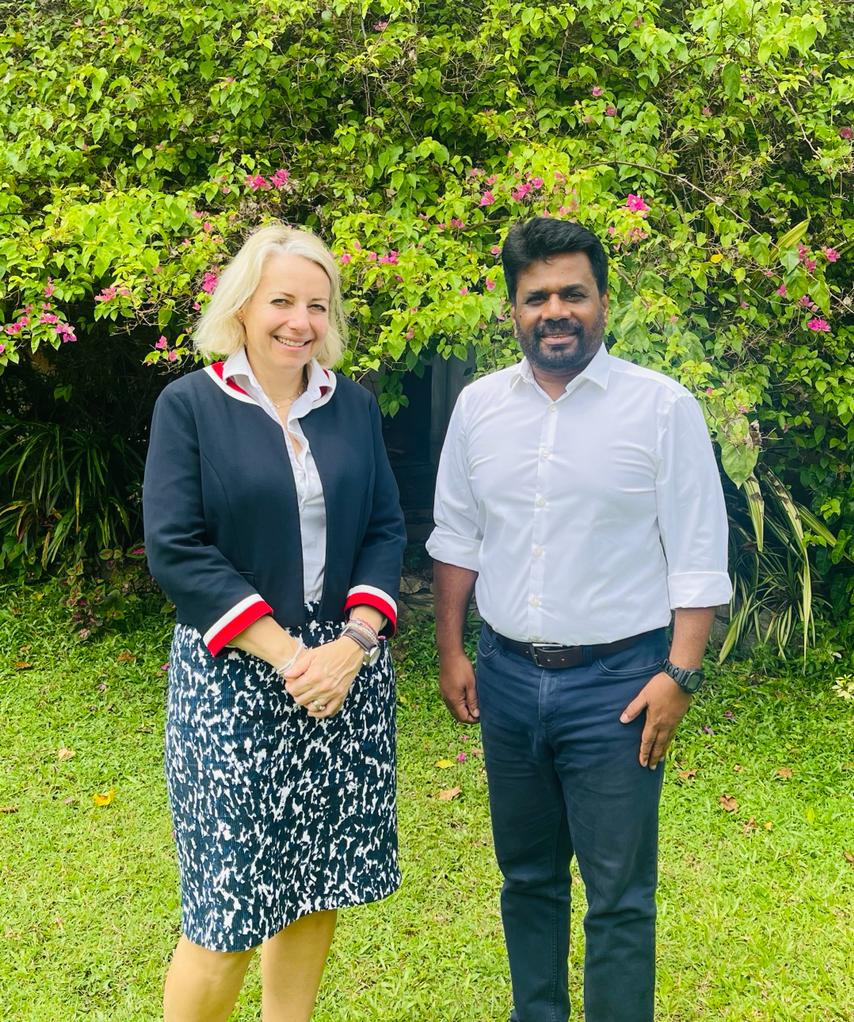
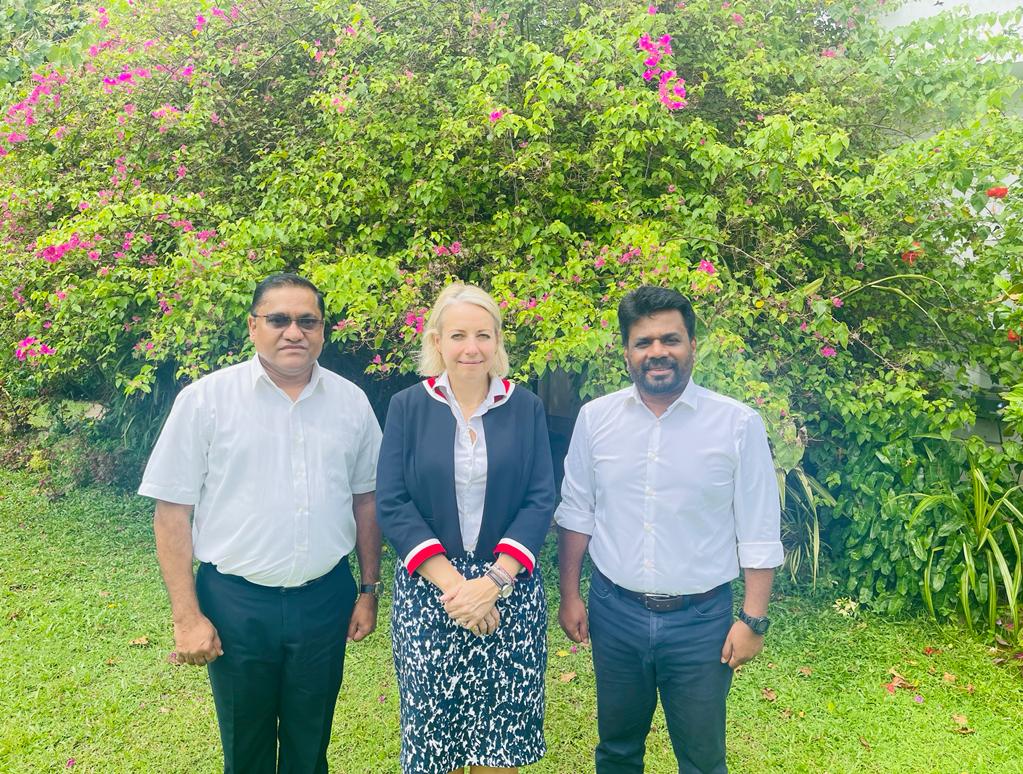
MIAP
APPRECIATION: Egerton Cooray
Siblings have common traits and but each is nevertheless unique. All my uncles were greatly loved, but loved differently for different reasons. It is the same with Egerton Cooray, my father’s younger brother. Unlike most of his siblings, Egerton Bappa never held powerful positions, was never ambitious and yet in my opinion he was the finest human being in the Cooray family and undoubtedly the most light-hearted of the lot.
He was fond of all his siblings and was very loyal to each of them, but had an extra warm and special bond with my father, which perhaps made him extra special to me. He had an exemplary life. He had a very simple lifestyle and was a truly humble human being. He never aspired the heights most of his brothers reached, but never grudged their success, always full of admiration and always content with what he had.
Egerton Bappa revelled in the circumstances he found himself in, never lost his sense of humour and was always ready to laugh at himself. In fact it was impossible to offend him. He took rebuke with a smile, often cutting in by saying ‘I did something wrong and you are going to blast me, aren’t you?’ How could one not find that endearing?
He loved to be among people, loved to sing, drink a little and have a good time. He was never more happy than when he made others happy, made them laugh and forget life’s trials and tribulations. And yet he could be dead serious when sobriety was necessary. He was a devout Catholic who was always at the side of anyone who was facing a crisis situation. He could be emotional at time for he was a sensitive person, but one and all recognised and respected him for expressing himself frankly and without an iota of malice.
Egerton Bappa was not one who could be trusted with a secret. The entire family knew this. When he slipped he would admit and apologise: ‘Aiyo sorry putha I did a mistake, I forgot that it’s meant to be a secret.’ And that was that — we knew, all of us did, that he was a very honest man with an extremely big heart.
After his father passed away when he was very young, he took it upon himself to take care of his mother. I recall how he used to frequently visit achchi and make sure she was comfortable. He made it his business to take care of people to the best of his ability, always concerned, always worrying.
A few months ago I was in Sri Lanka. I didn’t get to see him and now I can’t forgive myself. He was in the best of health. He wouldn’t have complained and from wherever he is now I’m sure he would respond to this with characteristic dismissal: ‘don’t be silly putha’.
He left behind memories that will be treasured by everyone who had the privilege of knowing him. I know he is in a good place and I pray that his wife Aunty Melanie and son Gihan Malli will have the courage and strength to contend with this terrible loss.
Two years since the death of Priyath Liyanage…
It has been two years since the death of Priyath Liyanage, the first Sri Lankan editor of BBC Sandeshaya, who left an indelible mark on the Sri Lankan media industry.
Priyath, who led the BBC Sinhala Service fearlessly facing racist movements in one of the most challenging chapters of Sri Lankan history, fulfilled his media mission despite threats to his life.
Although he was a close friend of President Premadasa’s, he was not even allowed to attend his father’s funeral during Premadasa’s regime, since Sri Lanka was “banned” for him during Rajapaksa’s regime due to his bold media mission.
“Sandeshaya”, which was once taken off the radio by the Chandrika regime, was re-entered the radio with the approval of the then Prime Minister Ranil.
Even though his colleague from Royal College, President Ranil Wickremesinghe, supported the Sandeshaya in those days – the current period of time has become an era in which not only peaceful fighters but also policewomen are being brutalised, hence the absence of the Sandeshaya and our beloved friend Priyath is being felt and missed more than ever today.
False promises at the cost of women and working people
Feminist Collective For Economic Justice Statement On Sri Lanka’s Proposed National Budget for 2023
The Government’s budget presented on 14th November, 2022 is incredibly callous. It fails to acknowledge the suffering Sri Lankans are enduring due to the economic crisis. The budget speech refers to ‘rapid economic growth’ and ‘economic modernization’ as the way forward, which are unrealistic in the current scenario. While many Sri Lankans are experiencing hunger, it received no mention in the budget speech. At a time when proposals ought to be overtly people centered to mitigate the humanitarian impact of the crisis, the budget reflects a serious disconnect from the realities of ordinary people of this country.
We are appalled that while admitting to the failure of economic policies since the late 1970s, there is a direct laying of blame with the people. Demonstrating a complete lack of awareness of people’s lives in the past and present, the budget speech says, “We got lazy day by day. People got used to getting everything from the government,” casting hardworking people as lazy and discrediting their contribution to the economy. It is timely to recall that the shift to the liberalisation model pushed Sri Lankans into employment under harrowing working conditions to be exploited as cheap labour. The Sri Lankan economy has and continues to survive upon the shoulders of the workers, primarily women, in these sectors of unfair labour – garments, migrant labour and plantations.
It is an abject failure of the government to take responsibility for the crisis that the working poor in Sri Lanka find themselves in today. The crisis is a direct result of ill-conceived economic policies over the years by the ruling class, including by investing foreign debt into projects that did not benefit the working people.
Women’s Labour
The proposed budget fails to acknowledge the burden of the crisis on women and only refers to the elusive category of ‘young women entrepreneurs’. Thousands of women are leaving as migrant workers to send hard earned remittances to the country. Where are they in this budget?
An entrepreneurship model based on microfinance loans is already established as deeply problematic. For years, this country has failed to provide solutions to the widespread and overwhelming household debt cycles that the poor have been thrown into, as a result of these loans. Those affected by microfinance loans, some of whom have taken their own lives, have made the horrors of these loans well known through long standing protests. The budget also fails to recognize the increase of violence against women this year. Women are bearing the brunt of this crisis and this budget attempts to transfer the burden of economic recovery squarely on to women as well.
Unemployment
Given the contraction of the economy by almost 10% of GDP is expected this year, widespread unemployment is inevitable. The solution to the looming unemployment cannot be resolved by entrepreneurship and foreign employment. Instead, in order to stimulate the local economy, the Government should be committing to investing in key sectors such as agriculture, fisheries and local industries and strengthening public services. No such commitment is reflected in the budget.
Dependence on attracting foreign investments amidst a rather bleak global economic scenario is risky. Furthermore, plans for more economic zones signals expansion of precarious, cheap labour that particularly targets women. We are well aware of the disregard for labour laws by employers in export processing zones. The budget proposes more labour reform which raises alarm bells for workers’ rights.
Food security
Food security has not been given priority in the budget, even though recent reports suggest one third of the population are food insecure, over 70% of households have changed food intake habits and harvests have reduced by 33.7% (a 50 year low). We are not going to emerge from the serious food crisis without a robust plan to recover the food production and distribution system.
An allocation for nutritional supplements for children in risk of malnutrition is a welcome aspect in the budget. However, we note that the amount is inadequate to address the severe malnutrition reported among children. Given the very real danger of starvation deaths, the budget should have prioritised a food distribution system and a universal school meal programme.
We are concerned that the language of ‘underutilised’ and ‘unproductive’ land has led to displacement and eviction of the poor and workers in the past. We are well aware, the fertiliser ban in 2021 and increased costs have led the farmers to abandon cultivation. There is an urgent need to revitalise farming by supporting small farmers as a way to build sustainable futures for themselves, their families and for the food needs of the entire country. On the contrary, the budget enables formalising and justifying land acquisition by multinational corporations. This will further deteriorate rural economies by turning farmers, especially women into daily wage earners and no progress will be made in finding sustainable solutions to fulfill Sri Lanka’s food needs.
No relief has been provided to fisherfolk who are hard hit by sharp increases in kerosene prices in the budget, leaving the main source for protein Sri Lankans rely on in a precarious state. The plantation sector workers, who have been deprived by the state for decades, are yet again ignored in the budget.
Social Security
The budget proposes a ‘social security and open economy’ approach which is nonsensical. Looking at the social security items of the proposed budget, it is clear that there is no expansion of social security. Analysis of the exponential increase in poverty and an acknowledgement of the impact of inflation on the cost of living is absent. Even the inadequate relief can only be viewed with skepticism, given that registered beneficiaries are yet to receive the relief promised in the interim budget of September.
The budget refers to the meager amounts of relief provided to specific categories identified as vulnerable groups. Such an extremely limited focus on social security is illogical when even conservative predictions are that almost half of the population are in danger of falling into poverty. The failure to consider universal social protection in these dire circumstances is a stark gap.
Education and Health
The budget has no mention of the major disruptions to schooling due to Covid-19 and thereafter, the economic crisis. It does not address learning loss or propose a plan for education to help an entire generation that has been impacted. The proposal to introduce paid wards to government hospitals is deeply concerning. Instead of addressing the frightful conditions of hospitals, such as lack of essential equipment, infrastructure, and trained staff in rural districts, the proposed paid wards will allocate the remaining limited resources to the people who can financially afford them, further marginalising the poorest. We are well aware that these are initial steps towards eventual privatisation of the health system in Sri Lanka, thus, ridding the country of its proud accolade of being the only nation in South Asia with a functional public health system.
The allocations made to vital sectors in comparison to the allocation for Defence is telling of the Government’s priorities. The budget allocation for Defence is Rs. 539 billion while Health is allocated Rs 322 billion and Education Rs 232 billion.
Revenues
The Government is relying heavily on indirect taxes (VAT) for revenue generation. We can expect the cost of living to continue to remain high in the coming year, given no wage increases are in sight. It is the ordinary people who have to bear the burden of the proposed tax scheme and be expected to shoulder economic recovery. Demands for a wealth tax have gone unheard. We, as FCEJ, have called for redistributive justice via a wealth tax to increase government revenue without making the lives of ordinary citizens even harder.
Economic recovery?
The budget does not address the immediate humanitarian concerns of preventing a food crisis. Nor does it put forward an economic recovery programme that is people centered. Instead, disjointed policy prescriptions that hark back to the failed policies of an earlier era have been regurgitated. The budget, no doubt, will deepen the impact of the crisis for ordinary people. It is time for people to rise and demand for economic justice.
The Feminist Collective for Economic Justice is a collective of feminist economists, scholars, activists, university students and lawyers from across the country that came together in April 2022 to understand, analyse and give voice to policy recommendations based on lived realities of communities they work with in the current economic crisis in Sri Lanka.
Please send your comments to – [email protected]
16 November 2022
Basil Rajapakse to arrive in the island this weekend
It is reported that Basil Rajapaksa, the national organizer of the Sri Lanka Podujana Peramuna, who has gone to America, is scheduled to return to this country this weekend.
Accordingly, it is stated that he will return to Sri Lanka on the 20th.
Sources said that he will soon come to the island to prepare the party for the upcoming local government elections by strengthening the reorganization activities of the party which is currently weakened.
Hirunika’s ‘Defender Case’ adjourned!
The Colombo High Court today (16) ordered the adjournment of the case filed against former Member of Parliament Hirunika Premachandra for abducting a young man by a Defender and torturing them, until January 30, 2023.
When this case was called before Colombo High Court Judge Amal Ranaraja today, the lawyer who appeared for Hirunika Premachandra stated before the court that the prosecution is ready to present two video evidences related to this case and that they need time to study the content of those evidences.
Accordingly, the lawyer asked the court to adjourn the trial.
Opposing the request, the Deputy Solicitor General who appeared for the prosecution said that this case has already been delayed for about 6 years.
However, allowing the defense’s request, the judge adjourned the case until January 30 and said that the case will be adjourned for the last time and that the case will definitely be heard on January 30.
Weather Alert: Rain showers to be expected by the afternoon today
According to the Department of Meteorology, there will be rain or thundershowers after 2.00 pm at some places in Western, Sabaragamuwa, Central, Southern and Uva provinces.
There may be frosty conditions in the morning in Western, Sabaragamuwa, Uva and Central provinces and in Galle and Matara districts.
The department kindly requests the people to take necessary measures to reduce the dangers caused by temporary strong winds and lightning that may occur with thunderstorms.

